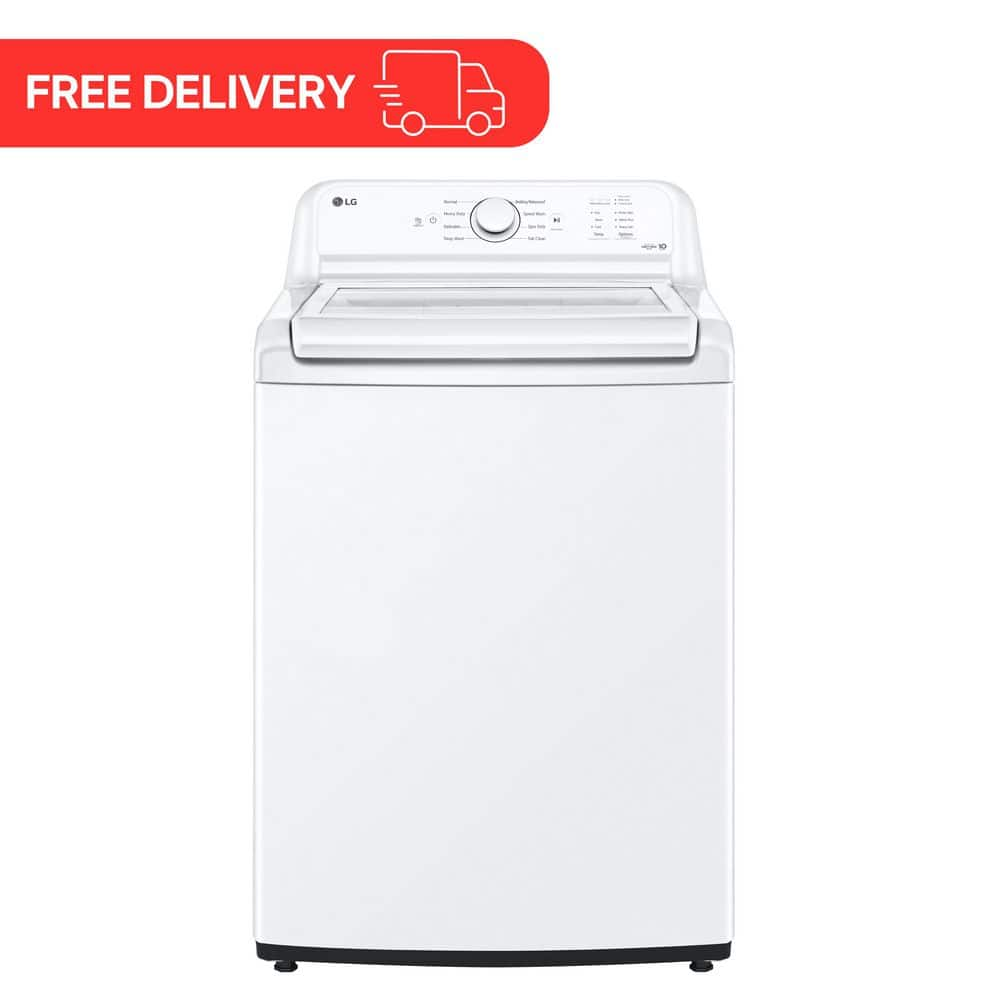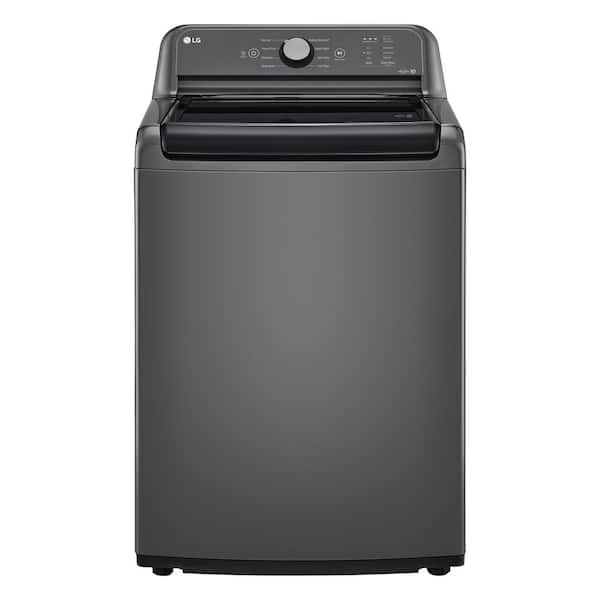Are you facing issues with your LG True Balance washer? You’re not alone.
Many users experience common problems that disrupt their laundry routine and cause frustration. Whether your washer isn’t spinning properly, making strange noises, or showing error codes, understanding these issues can save you time and money. You’ll discover the most frequent LG True Balance washer problems and easy ways to fix them.
Keep reading to get your washer running smoothly again.
Common Issues With Lg True Balance Washers
LG True Balance washers are popular for their quiet and efficient washing cycles. Many users enjoy their reliable performance. Yet, like all machines, these washers can face some common problems. Understanding these issues helps in quick fixes and better maintenance.
This section covers frequent problems found in LG True Balance washers. Each issue affects the washer’s performance in different ways. Knowing the signs can save time and prevent bigger repairs.
Drum Not Spinning
The drum may stop spinning during a wash cycle. This can happen due to a broken belt or motor issues. Sometimes, the washer detects an unbalanced load and stops the drum for safety. Clearing the load or checking the motor helps fix this problem.
Water Not Draining
Water staying inside the drum after a cycle is a common issue. It may be caused by a clogged drain hose or pump. Debris like lint or small objects can block water flow. Cleaning the hose and pump often solves this problem quickly.
Washer Not Starting
When the washer does not start, it could be a power issue. Check if the machine is properly plugged in. Faulty door locks or control boards can also stop the washer from starting. Testing these parts helps identify the cause.
Unusual Noises
Strange sounds during washing are signs of trouble. Worn bearings, loose parts, or foreign objects can cause noise. Loud banging or grinding sounds need immediate attention to avoid damage. Regular cleaning and inspection reduce noise problems.
Error Codes Displayed
LG washers show error codes to signal specific problems. Codes like “OE” mean drainage issues, while “UE” relates to unbalanced loads. Checking the user manual for error codes guides proper troubleshooting steps. This helps fix issues faster and prevents damage.
Reasons Behind Washer Problems
LG True Balance washers are popular for their efficiency. Yet, problems can occur during use. Understanding the common causes helps in quick fixes and avoids damage. Many issues arise from simple faults that anyone can check at home.
Knowing why washers fail helps users keep their machines running longer. Below are some main reasons behind washer problems.
Power Supply Issues
Power problems often cause washers to stop working. Loose plugs or damaged cords can interrupt electricity flow. Sometimes, circuit breakers trip and cut power to the machine. Checking the power source is the first step in troubleshooting.
Blocked Drainage System
Drainage blockages prevent water from exiting the washer. Dirt, lint, or small objects can clog the drain hose or pump. This causes water to remain inside, stopping the wash cycle. Cleaning the drainage path regularly avoids buildup and problems.
Imbalanced Load
Uneven clothes distribution causes the washer to shake or stop. Overloading or placing heavy items on one side creates imbalance. The washer tries to balance but may fail, triggering error codes. Sorting clothes evenly helps the washer work smoothly.
Faulty Sensors
Sensors control water level, temperature, and drum movement. Faulty sensors send wrong signals to the control board. This leads to errors or incomplete cycles. Sensor issues may need professional repair or replacement for proper function.
Worn Out Components
Parts like belts, bearings, and seals wear down over time. Worn components cause noise, leaks, or failure to spin. Regular maintenance and timely part replacement keep the washer in good condition. Ignoring wear can lead to bigger problems.
Diy Fixes For Common Issues
LG True Balance washers can face some common problems. Many of these issues can be fixed at home without a technician. Simple steps can save time and money. Basic tools and a little effort can restore your washer’s performance. Below are easy DIY fixes to try first.
Resetting The Washer
Resetting the washer clears minor errors. Unplug the machine from the power source. Wait for about one minute. Plug it back in and turn it on. This simple step often resolves electronic glitches. The washer may work normally after the reset.
Cleaning The Drain Pump Filter
A clogged drain pump filter causes water drainage problems. Locate the filter at the bottom front of the washer. Open the cover and place a towel underneath. Remove the filter carefully and clean out lint and debris. Rinse the filter under running water. Replace it securely before closing the cover.
Balancing The Laundry Load
An unbalanced load creates noise and stops the spin cycle. Distribute clothes evenly around the drum. Avoid washing a single heavy item alone. Mix large and small items for better balance. Make sure the washer stands on a flat surface. Balancing the load helps smooth operation.
Checking And Replacing Hoses
Damaged hoses cause leaks and water flow issues. Inspect hoses for cracks, holes, or loose connections. Tighten any loose fittings with a wrench. Replace damaged hoses with new ones designed for your model. Regular hose checks prevent water damage and keep the washer safe.
Inspecting Door Lock Mechanism
The washer won’t start if the door lock is faulty. Check the door lock for visible damage or dirt. Clean the lock area gently with a dry cloth. Make sure the door closes firmly. If the lock is broken, replace it with a compatible part. A working door lock ensures safe washing cycles.

Credit: www.homedepot.com
When To Call A Professional
Knowing when to call a professional for your LG True Balance washer saves time and stress. Some problems need expert attention to avoid damage or high repair costs. Recognize the signs that show your washer needs a technician’s help. Acting fast can keep your washer working longer and better.
Persistent Error Codes
Error codes appear on the washer display to show issues. If the same error code keeps coming back after resets, call a professional. Persistent codes may indicate complex problems in the system. Technicians can diagnose and fix the root cause safely.
Electrical Component Failures
Washer parts like the control board or sensors can fail. These parts control many functions and need special tools to repair. If your washer does not power on or stops mid-cycle, avoid DIY fixes. Electrical problems need a trained technician to handle them properly.
Motor And Drum Issues
Strange noises or the drum not spinning are warning signs. Motor or drum failures affect washing quality and can worsen quickly. Professionals can check and replace damaged parts without harming the machine. Do not ignore these signs to prevent bigger damage.
Water Leakage Problems
Leaks under or around the washer can cause water damage at home. Finding the leak source can be tricky without experience. Leaks might come from hoses, seals, or internal parts. A professional can locate and fix leaks to stop water waste and damage.
Tips To Extend Washer Lifespan
Extending the lifespan of your LG True Balance washer saves money and hassle. Simple daily habits can keep your washer running smoothly. Small efforts prevent big problems over time.
Follow these tips to keep your washer healthy and working well for years.
Regular Maintenance Steps
Clean the washer drum and detergent drawer often. Remove dirt and soap build-up to stop bad smells. Run a cleaning cycle monthly using a washer cleaner or vinegar. Wipe seals and door edges dry after each use. This prevents mold and mildew growth inside the machine.
Using Correct Detergents
Choose detergents made for high-efficiency washers. Too much foam can harm the washer’s parts. Measure detergent carefully according to the load size. Avoid harsh or abrasive cleaners that damage the drum or seals. Using the right detergent keeps the washer balanced and clean.
Avoiding Overloading
Do not overload the washer drum. Too many clothes strain the motor and drum bearings. Wash heavy items like blankets separately to reduce stress. Overloading causes poor cleaning and may lead to breakdowns. Keep loads moderate for better washing and longer washer life.
Routine Inspections
Check hoses and connections regularly for leaks or cracks. Replace any worn or damaged parts quickly. Listen for unusual noises during cycles, which signal problems. Inspect the drum for signs of rust or damage. Early detection of issues prevents costly repairs later.
Proper Installation Practices
Install the washer on a flat, stable surface to prevent vibration. Level the washer by adjusting the feet as needed. Connect water supply and drainage hoses firmly without kinks. Avoid placing the washer in direct sunlight or damp areas. Correct installation protects the machine and improves its performance.

Credit: www.lg.com

Credit: www.homedepot.com
Frequently Asked Questions
What Causes Lg True Balance Washer To Stop Spinning?
A common cause is an unbalanced load or a faulty motor control board.
How To Fix Lg True Balance Washer Not Draining?
Check for clogs in the drain hose or a broken drain pump.
Why Is My Lg True Balance Washer Making Loud Noise?
Noises often result from worn bearings or foreign objects in the drum.
How To Reset Lg True Balance Washing Machine?
Unplug it for one minute, then plug it back to reset the system.
What To Do If Lg True Balance Washer Leaks Water?
Inspect door seal, hoses, and detergent drawer for damage or blockages.
Conclusion
LG True Balance washers can face common issues like unbalanced loads or drainage problems. Knowing these helps you fix them quickly and save time. Regular cleaning and proper use reduce chances of trouble. Staying aware of signs lets you act before problems grow.
Trust your washer more with simple care tips. Keep your laundry routine smooth and stress-free. Small efforts make a big difference in washing performance.
